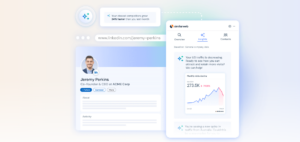By Katie Appleby, Head of Marketing, FIXR
In what are fast becoming ‘the old days’, thousands of people could stream through the doors of a nightclub, bar, or restaurant without anything being known about them – their likes, habits or demographics. However, since the pandemic, event organisers have been forced to make changes to the way they operate, including how they sell tickets and take reservations.
For many, this has brought about a longer-term transformation, with some of the UK’s largest nightlife companies fully embracing the benefits of digitisation: selling tickets online, deepening customer relationships through a better flow of information, and promotion through social media and micro-influencers.
As a result of the information gleaned, there is a real opportunity for event organisers to harness the power of this data to bring new people together with new experiences. The current economic landscape means customers are being selective not only about how they spend their money but also how they spend their time, so it’s crucial that event organisers adjust their approach to meet consumers‘ changing needs.
Shifting the events ecosystem online
Recent data from The Night Time Industries Association showed that one in five nightclubs have closed permanently since the start of the pandemic. The nightlife scene has certainly changed from 10 years ago, as operating pressures, coupled with consumers with less disposable income, have taken their toll. However, the industry contributes 1.6% of the UK’s GDP so it is essential that everything possible is done to secure its future during this moment of heightened vulnerability.
We should also reassess how people are reconnecting in a post-pandemic era. Through online engagement and social media, people have found communities of like-minded people. Post-lockdown we have seen a movement, led by Gen Z, of online groups originally brought together by the pandemic now sharing their passions through a continuous online/offline loop of real world events and other activities. creating real-world events and communities. This shift from on to offline brings with it a deeper understanding of the people walking through venue doors, and with that understanding, the opportunity to create more highly personalised experiences and campaigns.
While a data boom has swept through the likes of finance, retail and media, touch and feel remain king in the events industry. This stands to reason as good event organisers know instinctively what will fly. However, insights provided by digital ticketing can complement an event organiser’s usual practices. Using data to learn more about guests is key to winning or losing in this space. Smaller event organisers and creators of culture can seize the opportunity to think and operate like a business.that smart use of data affords.
Unifying digital marketers and customer experience teams
Marketing has always been subject to frequent change, especially through digital evolution. Marketers are continually redefining the sector: evaluating where the next trends lie, the changes across various channels, and how the likes of Google and major social platforms influence tactics for how we connect, relate, and respond to customers.
During the height of the pandemic, marketers were the first to translate government updates into industry action. This real-time rapid response was supercharged by the almost-weekly changes, and consequently, the standard and responsiveness of marketing is higher than ever before. But this does mean that marketers now need to keep abreast of multiple specialisms, or alternatively work within a bigger team with individual experts, to keep ahead of the speed of change.
Digital marketing is much more than just social media. While we still need a good understanding of a whole spectrum of channels, there is now an increased focus on the customer: the regulars, the brand advocates, the superfans and even influencers. We need to understand who sits within each category and how best to talk to and engage with them, so we can continue to build brand loyalty and leverage the consumer base further down the line. This is a role that it might feel sits with customer experience teams, but in a post-pandemic world, the lines between marketing and customer experience are increasingly blurred.
Marketing teams have been working hand-in-hand with customer service to deal with the sheer number of enquiries. Now, there is a real opportunity to build on this experience and unify both teams for greater success. By engaging with event-goers online, digital marketers and customer experience teams can build greater brand loyalty, offer targeted promotions and deals based on data, and even use bigger sets of anonymised data to innovate new event concepts knowing what is most popular in certain geographies and among specific demographics.
Ensuring longevity of events beyond key moments in time
Freshers Week 2022 is set to be the biggest the UK has ever seen, with first-year students coming together with those in their second and third years who were forced to study remotely during covid. It’s an opportunity for the events industry to make a big impact on a brand-new customer base before, during and after the week itself. Previously, students might look to those in the years above to find out where the coolest stuff was happening, but now, second and third years don’t have that same experience. Instead, Snapchat, TikTok, WhatsApp and TikTok offer that window for Gen Z into what’s going on before it happens.
With this huge events boom, everyone is looking to cash in, with more first-time event organisers than ever before, as well as established names looking to expand. But this crop of first years is savvy and expects good, fast customer service. They are also wise and want to know that something is legitimate before they hand over their hard-earned cash – so it’s important that organisers use reputable platforms and share detailed information in advance.
Universities are turning to digital transformation as a means of differentiating their proposition and reaching students where they socialise. Naturally, they need to be informative and educational, but critically they also need to inspire. Which is why they are also looking towards more modern, agile tools that provide a good user experience for university employees and students. Now, students are guiding both each other and SU staff with the info they need to identify the events and subcultures that speak to them, and enable students to get the most from their Freshers experience.
Facebook, Instagram and Google were already becoming less effective and more expensive marketing channels for events even before the pandemic. Recent changes to these platforms have made it even harder, particularly for small businesses, to reach their target audience and measure the success of campaigns so need to utilise other channels or redistribute where events are advertised for the greatest return on investment. FIXR can support companies to reach the right audiences through their own channels.
We don’t see ourselves as an intermediary between the event organiser and the customer. Instead, we’re seeking to use our technologies to bring them closer together. The population of event-goers has not disappeared, their preferences have simply changed. Event organisers need to change with them: not only adapting their approach but also the types of events they offer to meet this new demand.










